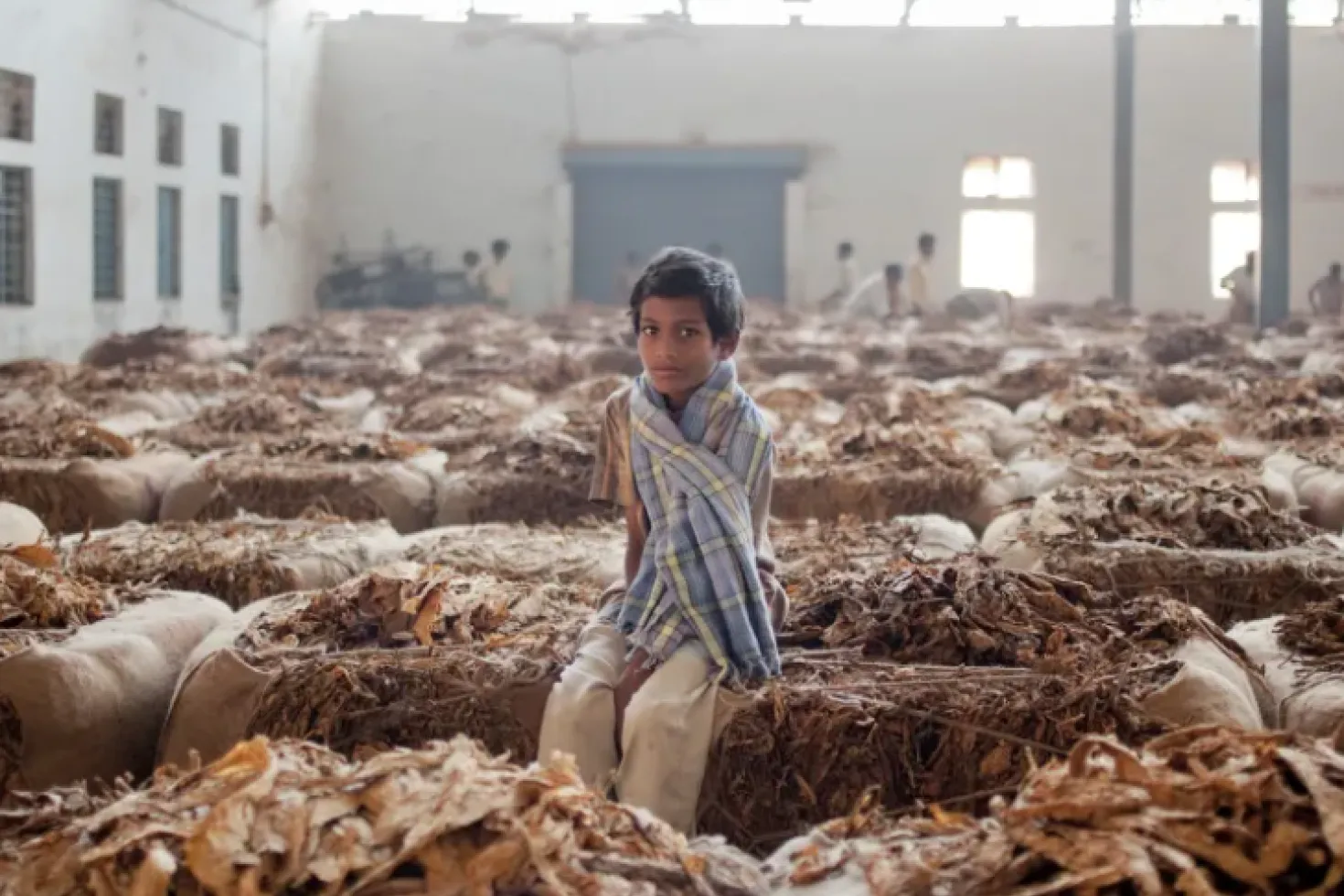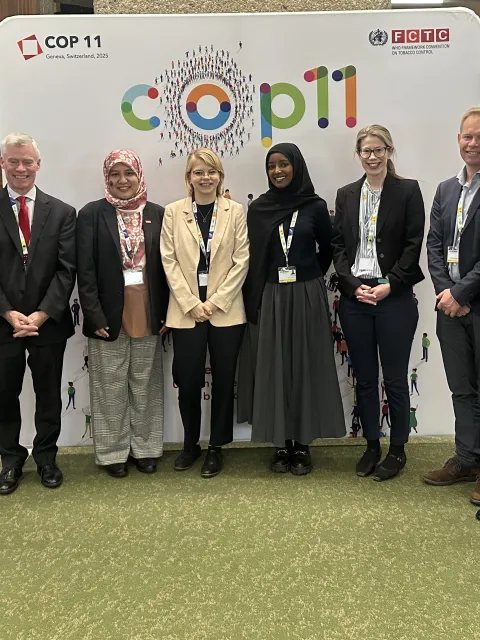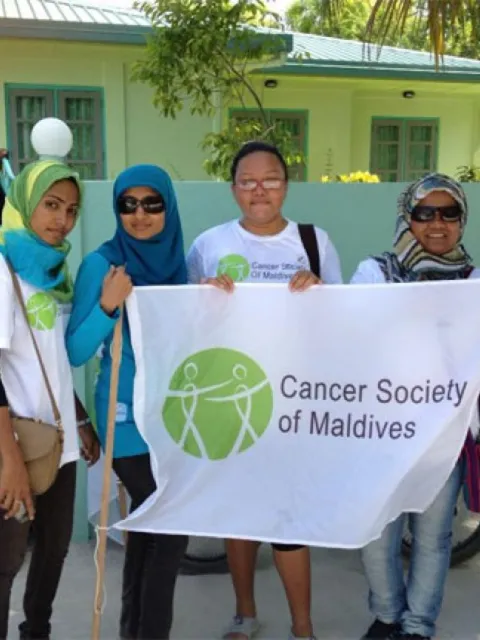Advancing tobacco control: key outcomes from COP10 in Panama City
COP10 resulted in promising decisions addressing the impact of tobacco on health, society, environment, and industry liability, while considering the role of new digital media and human rights.

HIGHLIGHTS
- COP10 convened global leaders and youth activists in Panama City to reinforce tobacco control, highlighting youth advocacy against industry marketing strategies.
- The conference underscored the need for ongoing FCTC implementation and recognised the critical role of civil society, including UICC members, in supporting treaty measures.
- Key outcomes include the adoption of guidelines on tobacco portrayal in media, initiatives for stronger tobacco control measures, and acknowledgment of tobacco's environmental and human rights impacts.
Ministers, officials and representatives of governments and international organisations, including a robust presence from UICC and other NGOs such as the Global Alliance for Tobacco Control (GATC), convened in Panama City 5-10 February to deliberate on tobacco control measures and review progress.
COP10 in Panama was the first Conference of the Parties to be held in person since it took place in Geneva in 2018.
A significant highlight of COP10 was the youth movement against tobacco, highlighting the critical role young people play in advocating for stricter regulations on tobacco products.
This global initiative encompasses movements such as Tobacco-Free Generation, ENSP Youth Group and the Global Youth Action on Tobacco Network and is supported by the World Health Organization's Framework Convention on Tobacco Control (WHO FCTC), and other organisations such as Campaign for Tobacco-Free Kids and the Truth Initiative.
These organisations are particularly focused on countering the marketing strategies of tobacco companies that target young individuals, making them highly vulnerable to starting smoking at an early age. Through education, advocacy and the exposure of industry tactics, youth activists are making strides in policy change and awareness.
The influence of the tobacco industry was a prominent topic at the conference as monitored by the Tobacco Control Research Group from the University of Bath, with discussions on how such tactics have impeded decision-making processes. Noting that some items addressing new and emerging products, and regulation of tobacco products content have been deferred to the next COP. Despite these challenges, COP10 witnessed the adoption of critical decisions aimed at bolstering tobacco control. These included new guidelines on tobacco in entertainment media, the establishment of an expert group to explore forward-looking measures, and recognition of the environmental impacts of tobacco, among others.
"This COP has shown that, more than ever, tobacco control is interlinked with global challenges including human rights and the environment. It also took important decisions to strengthen implementation of the FCTC, and to support Parties to innovate in tobacco control and to hold the tobacco industry accountable for the harm it causes. Going forward, Parties and advocates must remain aware of tobacco industry interference and develop strategies to counter this."
– Hayley Jones, Director of the McCabe Center for Law & Cancer, Australia
Looking ahead, the COP emphasised the need for ongoing implementation of FCTC articles, with certain items deferred to COP11. The role of civil society, particularly the work of UICC and its members, was highlighted as crucial in supporting the implementation of treaty measures both globally and nationally.
The UICC delegation included network and members organisations such as the McCabe Centre for Law and Cancer, ACT-Alliance Contre le Tabac, the Canadian Cancer Society, Cancer Research UK the American Cancer Society, and many others.
"COP10 was sort of overwhelming given it was the first in-person COP since 2018, and with the postponement from November 2023. So there was a lot to catch up on including establishing/re-establishing connection with colleagues and delegates who had changed in some countries. Being part of an organised global CSO movement really helped keeping up with the agenda and issues, as well as monitoring and exposing industry interference at COP. There are a few areas that could have gone better but we saw progress and are optimistic that intersessional work will enhance COP11 to deliver."
– Celine Awuor, Chief Executive Officer of the International Institute for Legislative Affairs in Kenya
Decisions adopted
- Additional guidelines on tobacco in entertainment media, including new digital media.
- An expert group was established to examine “forward-looking tobacco control measures” (“Endgame”) linked to article 2.1, which stipulates that there is no ceiling to how strict measures can be to advance the FCTC objective to “protect future generations from the devastating health, social, environmental and economic consequences of tobacco consumption”.
- An expert group was established to examine liability of the tobacco industry in relation with Article 19 of the FCTC on liability.
- The COP recognised the connection between tobacco and the environment and the need to “take into account the environmental impacts from cultivation, manufacture, consumption and waste disposal of tobacco products and related electronic devices” linked to Article 18
- The COP recognised the connection between human rights and tobacco control, an item that had been postponed since 2018.
Even though some agenda items were intensively discussed and therefore postponed to the next COP, the decisions made are promising, allowing to advance tobacco control globally and supporting countries to implement appropriate measures to curb tobacco and nicotine use.
Last update
Friday 12 April 2024
